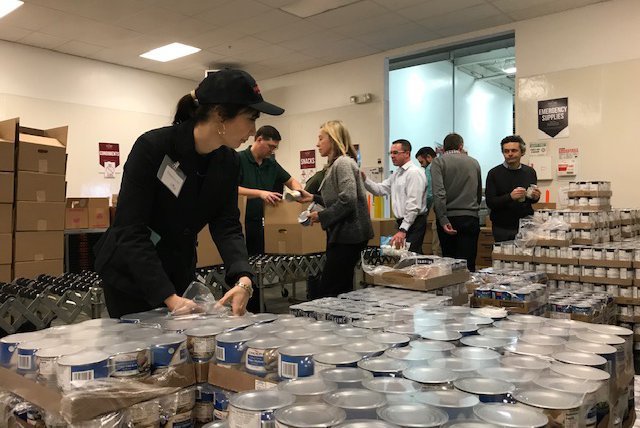
February 20, 2023
 Courtesy/Food Bank of South Jersey
Courtesy/Food Bank of South Jersey
Pennsylvanians enrolled in SNAP will receive their last supplemental checks this month, as the emergency allotments are set to expire ahead of the official end of the COVID-19 public health emergency.
As the U.S. government prepares to end the COVID-19 public health emergency declaration in May, a lot of extra benefits that Americans have received to help stay afloat are getting cut from federal budgets.
Starting next month, SNAP benefit recipients will not get the emergency supplements they have been receiving since 2020. As a part of The Consolidated Appropriations Act of 2023, Congress decided to end those allotments.
The public health emergency declaration allowed the federal government to change the caps on certain benefits, including the Supplemental Nutrition Assistance Program. Since 2020, anyone enrolled in SNAP has received an extra payment in the second half of the month, equivalent to $95 or whatever amount met the maximum threshold per household. For example, a family of three that typically received $200 a month for food received $740 in monthly aid with the extra support.
But with the public health emergency declaration expiring this year, those supplemental SNAP benefits will disappear at the end of February, affecting 1.88 million Pennsylvanians. Philabundance, the nonprofit food bank that services the Philadelphia region, is worried that with an already increased demand from pantries, the end of that aid will exacerbate the problem.
"So that is going to happen in a couple of weeks," Philabundance CEO Loree Jones Brown said. "With that backdrop, we're all very concerned. If families were already having a tough time, if inflation was already hitting them, we already had double the people coming in the fall when they lose this money each month, what's that going to do to the need? So that's what we're worried about. We're bracing ourselves for it."
Data from Philabundance showed that 30.9% of children in Philadelphia experienced food insecurity in 2020, and 15.8% of the city overall.
The organization, which has partners across the country, said that as the U.S. began to feel the effects of the COVID-19 pandemic, the need for food assistance increased by 60% — and nearly 40% of those visiting Philabundance partners were newly food insecure.
Philabundance went from distributing 25 million pounds in a year to distributing 50 million pounds annually, Jones Brown added. "In Southeastern Pennsylvania and South Jersey, over half a million people are designated as food insecure," she said.
As COVID-19 cases stabilized, the need began to subside. But for some demographics, such as people of color, those who live in rural areas and parents with multiple benefits, the struggle to provide meals remained.
Then last year, the need for food pantries increased again with the rise of gas prices, which led to an inflation of prices on many goods and services. As a result, the number of people who came to food pantries doubled toward the end of 2022, especially around the holidays. The Share Food Program in Delaware County, for instance, served more people in October 2022 than at any point in its year-long history.
With the number of people needing help increasing again and the loss of benefits on the horizon, Philabundance is working to raise funds and get more donations. They are also using resources to advocate with local and federal government partners and ensure families know about all the available resources.
"We understand that people are often food insecure or hungry due to no fault of their own," Jones Brown said. "There are challenges in the system that we're working to address.
"We do believe that there should be adequate support for families. We believe that accessing these benefits should be streamlined and easier for families. And so we're always talking to officials at every level. How do we make this easier?"